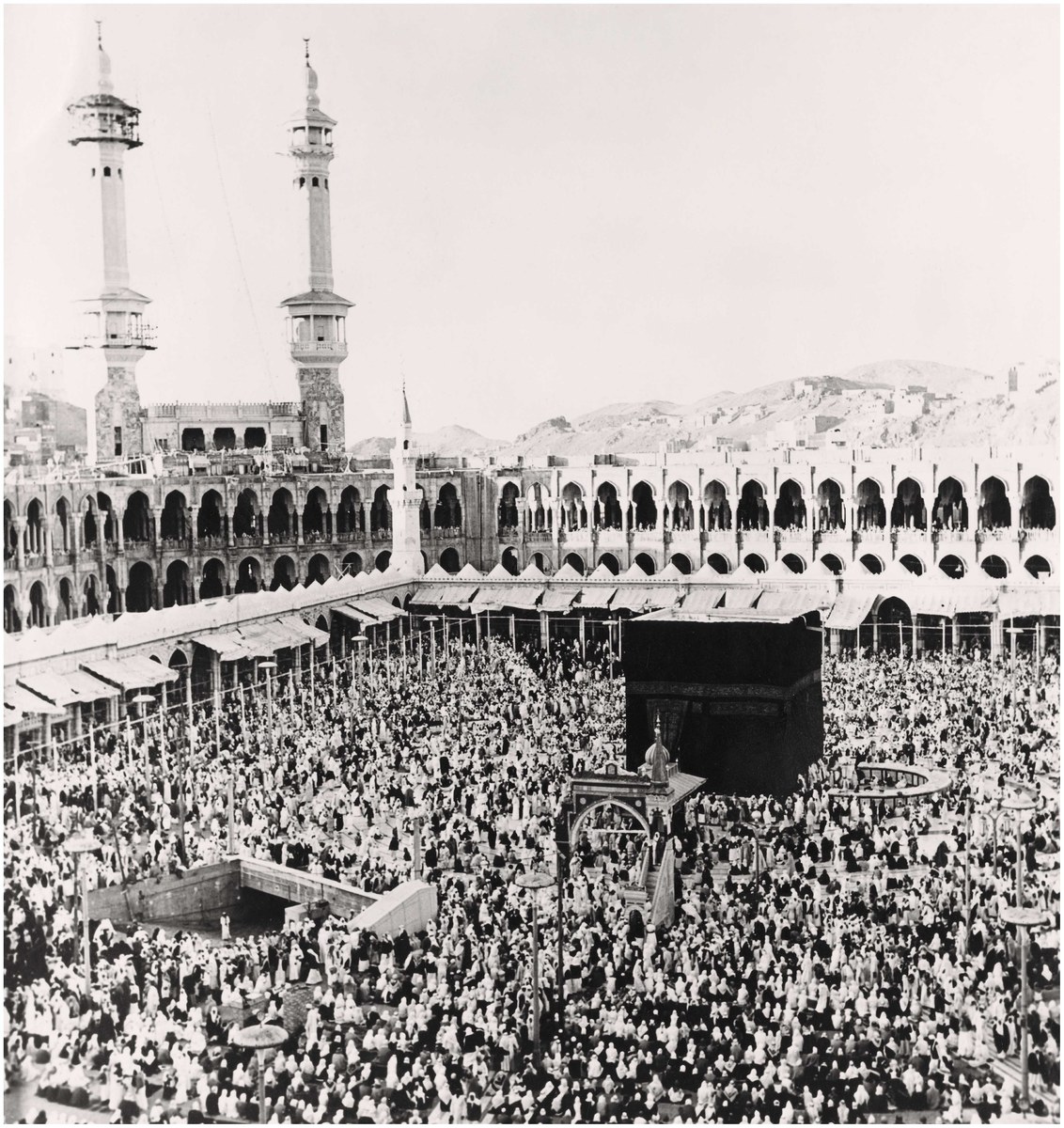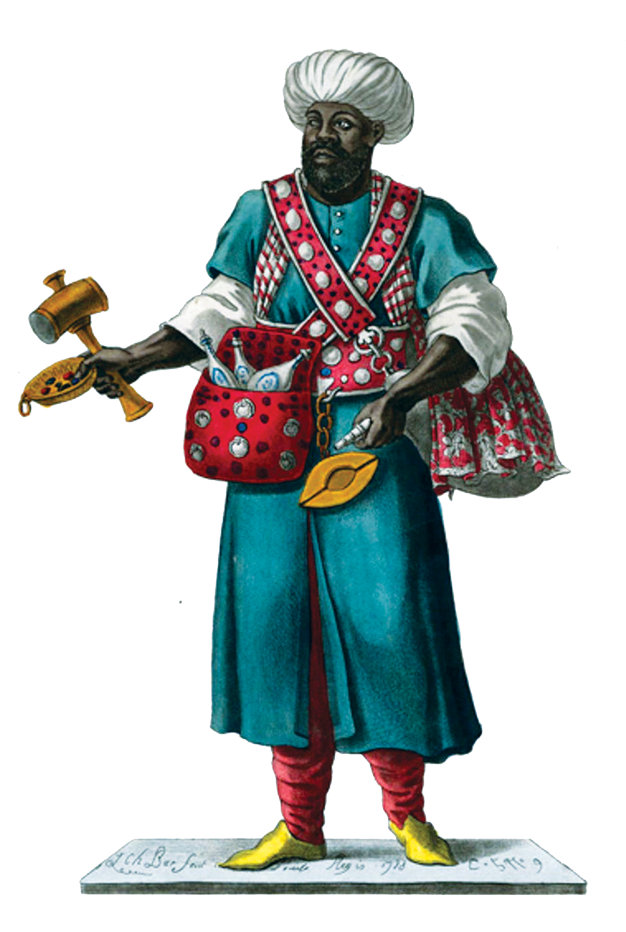MAKKAH: It is one of the most enduring miracles of Islam, representing God’s mercy. The Well of Zamzam first sprang 5,000 years ago under the feet of the Prophet Ismael after his mother Hagar, the second wife of Ibrahim, ran seven times between the two hills of Safa and Marwah looking for water to save her thirsty son.
The name of the well comes from the phrase Zome Zome, meaning “stop flowing,” a command repeated by Hagar as she attempted to contain the spring water.
The well’s ever-clean water has no moss, insects, fungus, or any other impurities. It contains a higher level of natural minerals than normal desalinated water. For this reason, it has a distinct, heavy taste.
Pilgrims are always keen to drink from the well and carry bottles filled with the water to their homelands since it is believed to be a natural source of healing for the sick, according to the Prophet Muhammad (peace be upon him).

The Holy Kaaba in the center of Makkah’s Grand Mosque on March 21, 1967. On the left is the entrance to the Zamzam well. Every year, millions of Muslims complete the Hajj pilgrimage to this sacred spot. (Getty Images)
The development and maintenance of the Well of Zamzam has been of major importance, with the water source protected for centuries in many ways. As the main source of water for visitors to Makkah in ancient times and for present-day pilgrims, the well has never stopped generating the blessed water for Muslims, except for a short period of time.
Throughout the ages, the well was guarded by Abd Al-Muttalib bin Hashim, grandfather of Prophet Muhammad, then by many Muslim caliphs up until modern times, when it fell under the protection of Saudi kings starting with the founder of current Saudi Arabia, King Abdul Aziz.
In the past, the holy well was protected in a primitive way, but during the late King Abdullah’s reign, a great leap was taken with regard to developing the way the well was maintained. He changed the methods of filling and distributing water across the Two Holy Mosques.
He also started the King Abdullah bin Abdul Aziz Zamzam Water Project (KPZW) in 2013.
With the increasing number of visitors coming for Umrah and Hajj, the demand for Zamzam water also rapidly increased. This necessitated more development for the well.
The construction cost of the project amounted to more than SR700 million ($187 million).
The project did away with many of the old unprofessional methods related to pumping, filtering, distributing and filling the water, replacing these with the newest, safest technologies.
In the past, the water used to be bottled manually in different-sized containers, without following an authorized bottling process, resulting in unwanted water pollution.
With this new project, however, there are two main sizes of authorized containers — five and 10 liters — in which the water is treated, bottled, stored, and distributed efficiently.
Before the end of the Hajj or Umrah journey, visitors make sure to get a bottle or two of Zamzam water before they leave, which in previous years used to result in chaos and unorganized queues. Today, the project allows water containers to be distributed to pilgrims inside buses or in airports in order to save time and prevent crowding.
Inside the Two Holy Mosques, the water is provided in coolers that undergo a daily cleaning and filling process.
The online purchase of Zamzam water is a part of the National Water Company’s project, which was initiated following the suspension of sales as a precaution during the outbreak of the coronavirus pandemic.
Zamzam water is now distributed via the Saudi electronic business platform HNAK, which offers home delivery service as well.
Extraction, pumping and continued surveillance of storage and pipelines are achieved through the optical fiber technology of the Supervisory Control and Data Acquisition network.
With all these technologies, the quality of Zamzam water’s natural minerals is preserved and sustained according to meticulous research carried out to determine the most suitable methods of pumping and filtering.
To prevent all the characteristics of Zamzam water from being affected by any external natural contaminations, the Zamzam Studies and Research Center has applied rigorous quality control.
“In order to be able to manage the Well of Zamzam in a sustainable manner, we need to have a full understanding of the environmental and hydrogeological setting of this holy well and the sources of water reaching it, including water conductors in the area,” Samer Showman, president of the research center, told Arab News.
“We need to see how the water is being stored and how fast it is moving and the types of minerals it extracts through its journey between the rocks to understand what characterizes the fingerprint of Zamzam water.
“We have linked the mathematical model with a rainfall data network and rainfall stations in a different part of the aquifer to determine the exact volume and quantity of water that can be extracted throughout the year in Wadi Ibrahim,” he added.
Showman said that a special laboratory for Zamzam water in Makkah tracks and tests different samples of the water, which are analyzed on a weekly basis to maintain water quality.


























